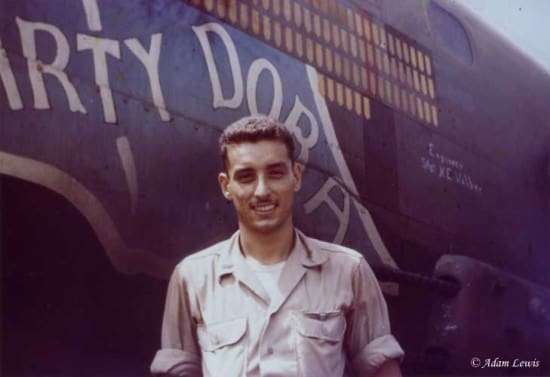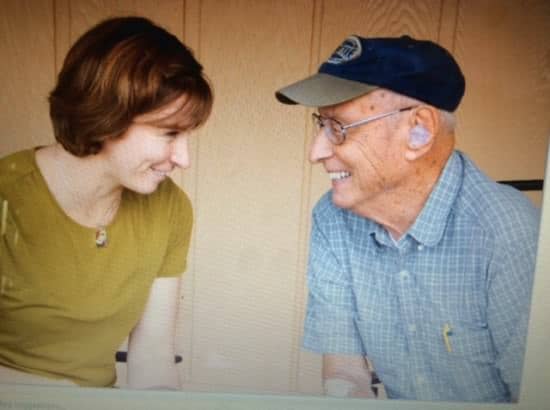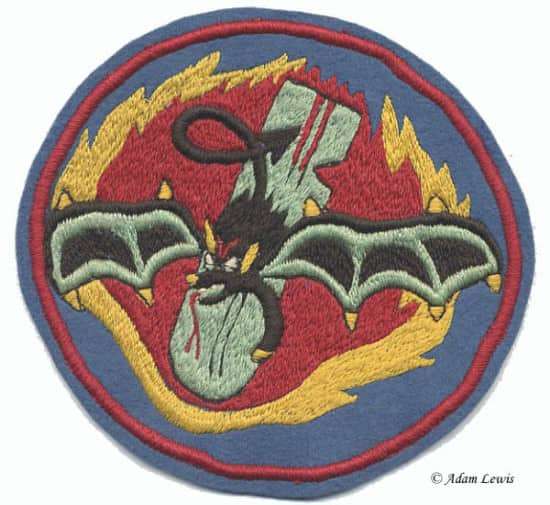Flying Colors by Sarah Moore
August 15 marks the 70th anniversary of V-J (Victory over Japan) Day. For many of us this date may be no more than another Saturday filled with afternoon barbecues and summer fun. For others, it is a day of much greater significance. It was on this date in 1945 that the surrender of Japan was announced around the world and World War II ended.
While the official surrender ceremony would not occur for another two weeks aboard the USS Missouri, the effects were felt immediately. Planes were called back from bombing and strafing runs, troops were ordered to cease fire and navy ships were ordered back to port. Around the world, particularly in the Pacific, an uneasy peace began to settle.
Victor Tatelman was a bomber pilot in the South Pacific at the time. He had served two tours, flown more than 100 missions, earned two distinguished flying crosses and established a sophisticated radar countermeasures program that was utilized around the Pacific. En route to a target over the Japanese home islands on August 15, 1945, the radio crackled.
“The mission has been canceled. Return to base. Repeat, return to base.”
Just like that, for Tatelman, the war was over. After years of bloody and hard fought war this new, hesitant peace was surreal. Men who had only hours before been preparing for enemy engagement, lazed around American base camps smoking cigarettes and waited for news. Boys had left home and gone to war. They would return men. They had been tested, tried and tempered in conflict and loss. Many had fallen. Those left behind carried with them the weight of memory, grief and anger.
Tatelman says it never fully goes away, the shock of seeing one of your own get shot down from the sky, fall on the battle field or simply just never come back. Now, 70 years later, he and his surviving fellow veterans still remember. They remember how odd it felt to listen to the quiet. There were no plane engines roaring through the skies. There was no more gunfire ripping through steel and flesh. He remembers the intense relief at being handed papers ordering him to return home to family and friends, clean sheets, home cooked meals and running water.
He remembers, too, the unrelenting anger and distrust he felt toward the former enemy. This distrust too, never fully went away. Tatelman still won’t purchase, or even rent, a car made in Japan. But time heals and memorials remind us. That’s what V-J Day is for those men who, like Tatelman, served, fought and bled during those years.
Every year the men from Tatelman’s unit, the 345th Bombardment Squadron, gather for reunions around the country. They come wearing emblems of the planes they flew or images of their squadrons mascots. Tatelman’s plane, “Dirty Dora,” bore the emblem of the “Bats Outta Hell,” as do many of the hats, mugs, and shirts that he has collected during the years.
 As time went on, one by one, these brave men again began falling; slowly at first, but gaining momentum. The voices and stories of this generation are being lost. It is with this in mind that Flying Colors (Branden Books; June 2015; $15.95) tells Tatelman’s story. His is a great story, full of adventure, honor, pride, and humor. He witnessed world-changing events and participated in the fight.
As time went on, one by one, these brave men again began falling; slowly at first, but gaining momentum. The voices and stories of this generation are being lost. It is with this in mind that Flying Colors (Branden Books; June 2015; $15.95) tells Tatelman’s story. His is a great story, full of adventure, honor, pride, and humor. He witnessed world-changing events and participated in the fight.
His story, like so many others that are disappearing, can still teach and move us. For men like Tatelman, August 15 is much more than just another Saturday. For them it is a memorial to their fallen brothers. To them it is the day that most defines who the greatest generation truly are.







